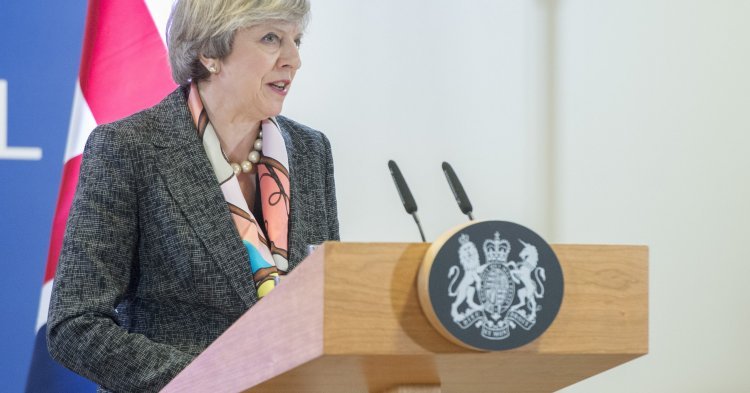Polls suggest that the Conservatives will win the election by a large margin. Some Remainers’ dream of the progressives stopping Brexit appears unrealistic, as the Liberal Democrats’ gains seem to remain modest and Labour is not even committed to fighting Brexit at this point. Brexit really means Brexit.
Democratic mandate but no more influence for May
Critics of Theresa May have often reminded her that she is unelected. She inherited her position as the Prime Minister from David Cameron, rather than winning it in an election. As polls suggest, on June 8 that will change. But will that make her position any stronger in the Brexit negotiations, due to start after the election? The answer is no.
Even before the election, the Conservatives have had a rather free hand in the House of Commons. Of course, in the parliament elected in 2015, the party had a narrow majority of its own before it was dissolved ahead of the election. The fact that the opposition has been weak, with Jeremy Corbyn’s Labour party internally divided on the question of Brexit, has made it even easier for the government to push its agenda which increasingly clearly appears to be not only anti-EU but also anti-Europe.
Whatever gains the Conservatives make in the election in June will of course enable the party to better withstand rebelling from its own MPs, but there has been no stopping the government so far either. In practical terms, little is set to change, and the same goes for Europe.
No matter how “strong and stable” the British government is internally, the fact stands that Britain is the weaker party in the Brexit negotiations. What has made Theresa May weak in Brussels so far hasn’t been her lack of a democratic mandate. It has been the fact that the positions Britain has advanced, notably Single Market membership without free movement, are incompatible with the law, and that the mechanism of leaving the EU inevitably leaves Britain at the mercy of the 27 remaining member states. On June 9, Theresa May will be no more powerful than what she is today.
Two more years of Brexit frenzy
The parliament to be elected in June will sit until 2022, rather than 2020 like it would have been without the snap election. That will of course leave more time for the government to negotiate any post-Brexit deals with the EU. If there is one reason why the election can make Britain more “strong and stable”, that’s probably it. However, when it comes to negotiating trade deals, the process will likely last for years, so a new election would likely have to take place at some point during the negotiations anyway.
On the other hand, if the election yields a fiercely anti-European government, that will of course mean that the wait for pro-Europeans before a next chance to gain power will be two years longer. If Britain is chucked out of the Single Market with no transitory deal in 2019, some may hope, the British economy will be saved from the ruins by the time the next election takes place, and maybe by then the voters will have forgotten the good times when trading with Europe was still easy. That may well prove overly optimistic, though, as finding a replacement for Europe after crashing out would likely take Britain longer than a couple of years.
If after the election Britain wakes up to another anti-European government, the daily drudgery of challenging it is what British Remainers will be left with. Of course, the government which will interpret the result of the election as a clear mandate for anything and everything they decide to do to embarrass themselves in Europe won’t be forced to listen. Nonetheless, that criticism will hammer home the message that leaving Europe is not a good idea, and that Britain still has the chance to learn from its mistakes. And when the sun rises on the election day in 2022, the only winning strategy for a political party in Britain will be to support more cooperation with Europe. Indeed, perhaps even a British membership of the European Union, this time with the kind of newfound humility that only grim reality can bring forth.


Follow the comments: |
|
